I spent 3 days at the Agile Manchester conference, and had a great time – lots of interesting talks and workshops, plus lots of time to speak to people from all kinds of roles and companies. There’s plenty of ideas I’d like to think back over and put into practice. This post’s a prompt for me to help remember things.
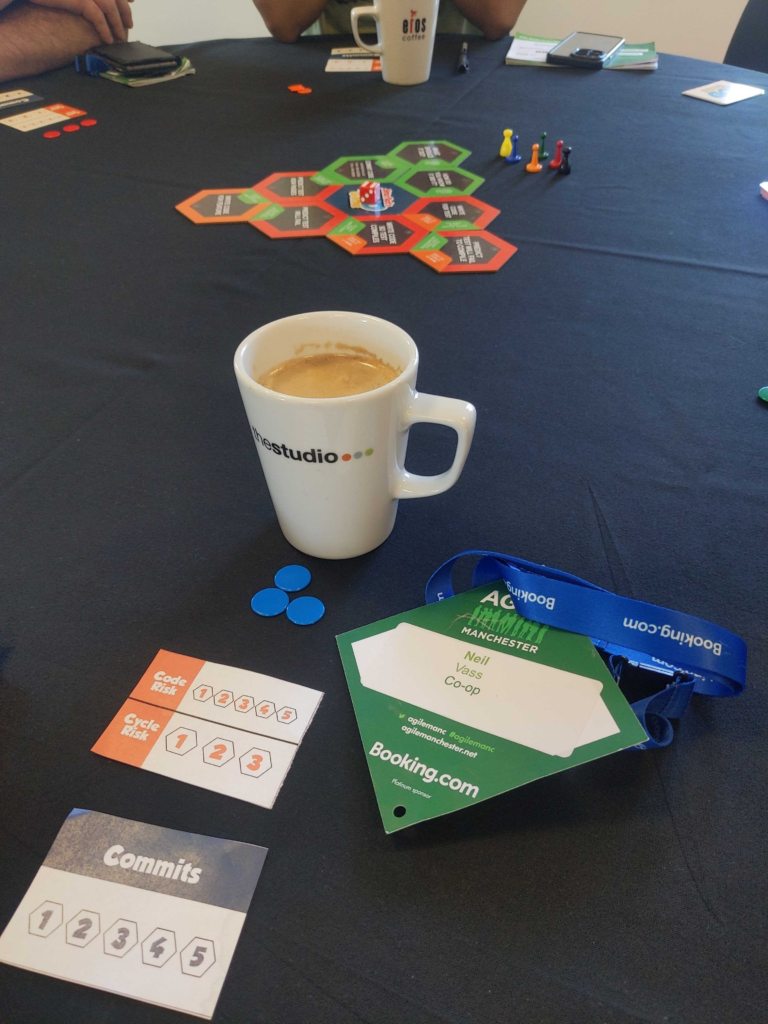
Notes from attendees
I’ve spotted some excellent writeups shared by others – how helpful! Jitesh Gosai wrote “12 things I learnt from Agile Manchester 2023”, with lots of links to the detailed notes he took in sessions.
Holly Davis had “An AgileManc takeover” of her usual weekotes, with nice summaries of chosen sessions plus reflections on what she plans to take away and try from each one. Nice inspiration for how to put talk ideas into practice.
I’ll keep an eye out for more…
Notes from presenters
Several presenters have written things up and shared online – much better notes about their work than any I could make!

Emily Webber’s “Why can’t we all just get along” post covers all the themes from her talk. I really like the framing: these are anti-patterns people fall into without realising the poor consequences, it’s happening around the industry. This makes it easy to share and discuss with people: does any of it look like something we might be doing, even a little? Are any of these remedies things we could try together?
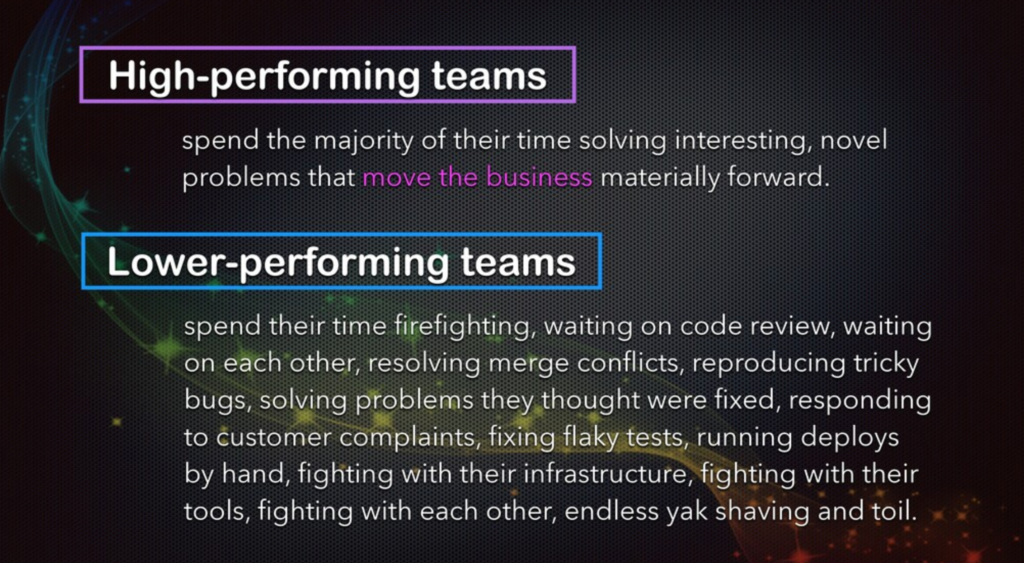
Charity Majors’ “It’s time to fulfill the promise of continuous delivery” was a clear and compelling argument for improving the way your team works. If it’s quick and painless to make changes to your services, and to spot and fix problems, then you’ll free up incredible amounts of time to focus on the important stuff. Charity’s written a blog post, shared her slides, and has a video of an earlier version of this talk online.
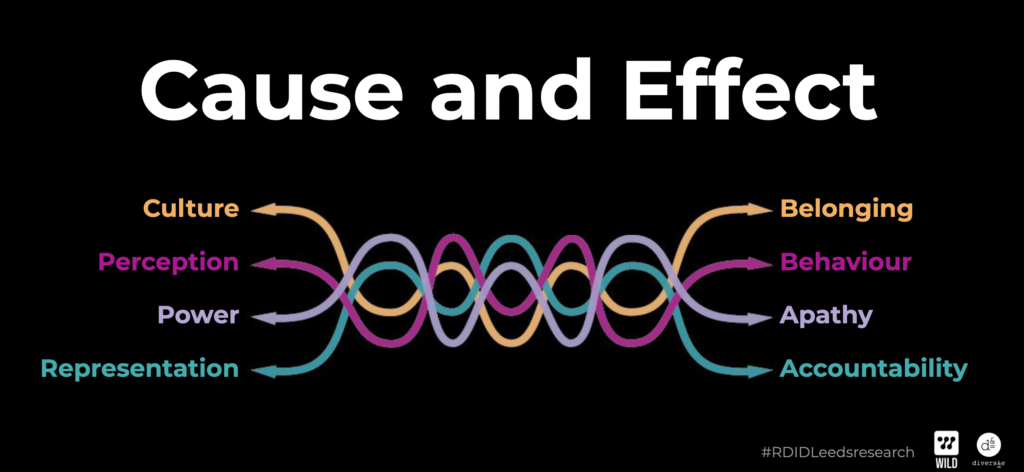
Annette Joseph’s “7 steps to unlocking the power of diverse teams” covered all kinds of insights into the importance of building diverse teams and organisations, and making it possible for people to thrive and contribute. There’s plenty of detail in the “Racial diversity in digital” report that Annette’s Diverse & Equal company worked on with lots of partner organisations.
There were lots of interesting and detailed questions following the talk – Annette gave good answers on the spot, and later added a thoughtful follow-up video to expand on her answer to one of them.
Quotes from presenters’ slides
I always like to watch out for wise quotes I might reuse somewhere – here’s a few that presenters included.
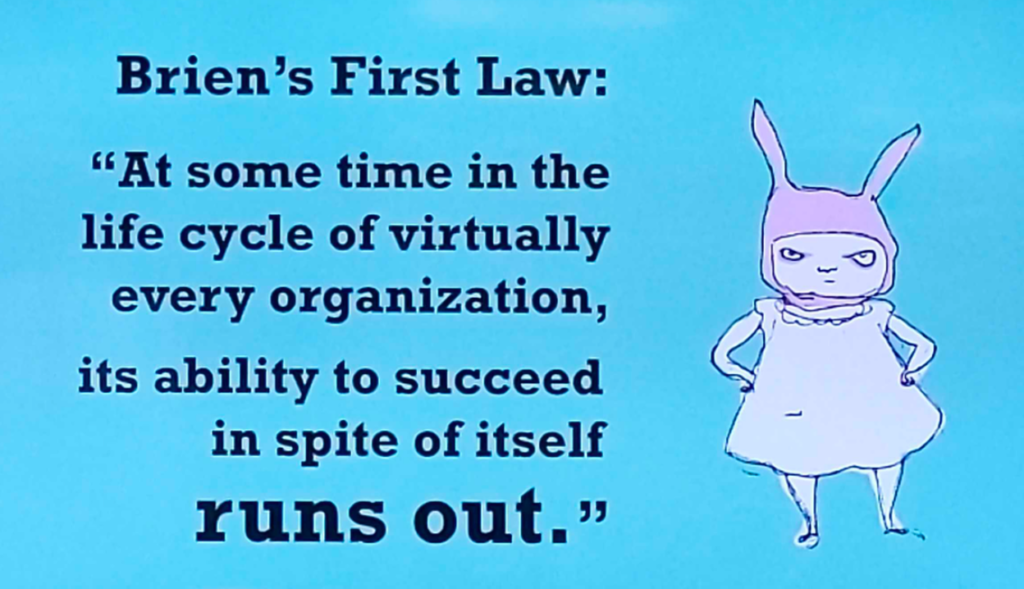
From Woody Zuill: In software development, there’s so much money to be made. Lots of our success comes despite all the unhelpful things we do.
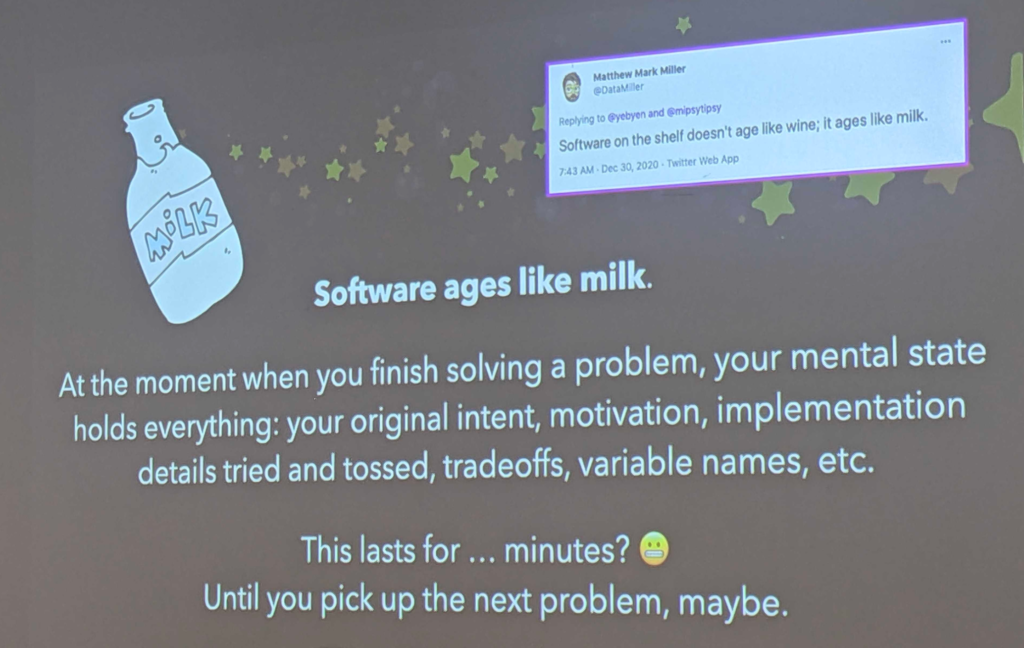
From Charity Majors: If you release one change, and get feedback in minutes, the person who deploys feels ownership. Batching up lots of things, waiting for days… sends you into a software development death spiral.
Phrases to read up on
Another thing I like to spot: Some named ideas that I can search out more on later – sometimes you find out that the exact challenge you’ve been working on has piles of promising advice that could be really helpful, now you have a phrase to look into. From this conference:
Annette Joseph described “group attribution error” for how we unfairly assign motivations, habits and qualities to people who aren’t in our “in-group”. Searching for more on that has led me into a useful set of Wikipedia pages, including ultimate attribution error, in-group and out-group, and a long list of “see also” links.
Emily Webber described “professional protectionism” – “when people feel overprotective over their role at the expense of collaboration and sharing with others”. As described in her blog post, it’s an idea that’s been researched in healthcare settings and sounds familiar in lots of situations any group’s worked in.
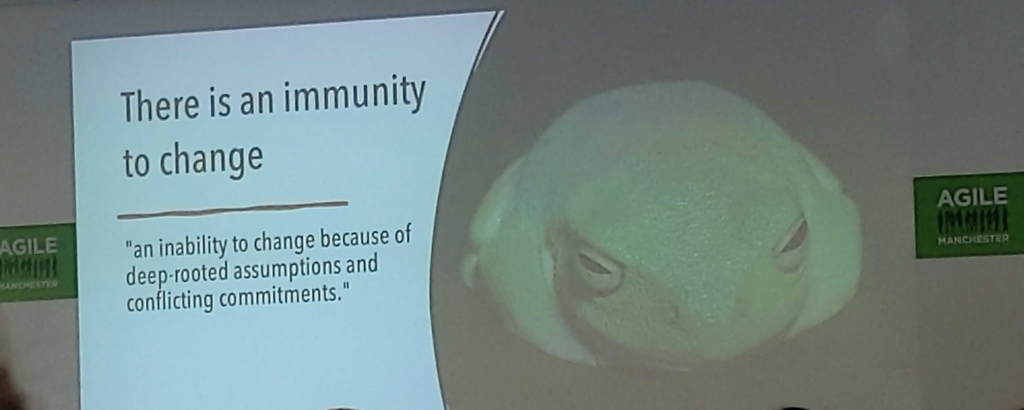
Preetha Ramaswamy and Andy Tabberer talked about “immunity to change” – I have heard this phrase, but this talk put it alongside a range of other effects that a team might be experiencing and talked about how to tackle it. This article explores the idea and links to a book, more articles, and other reading.
New ideas to try out
I love hearing about things I’d never think to try otherwise …
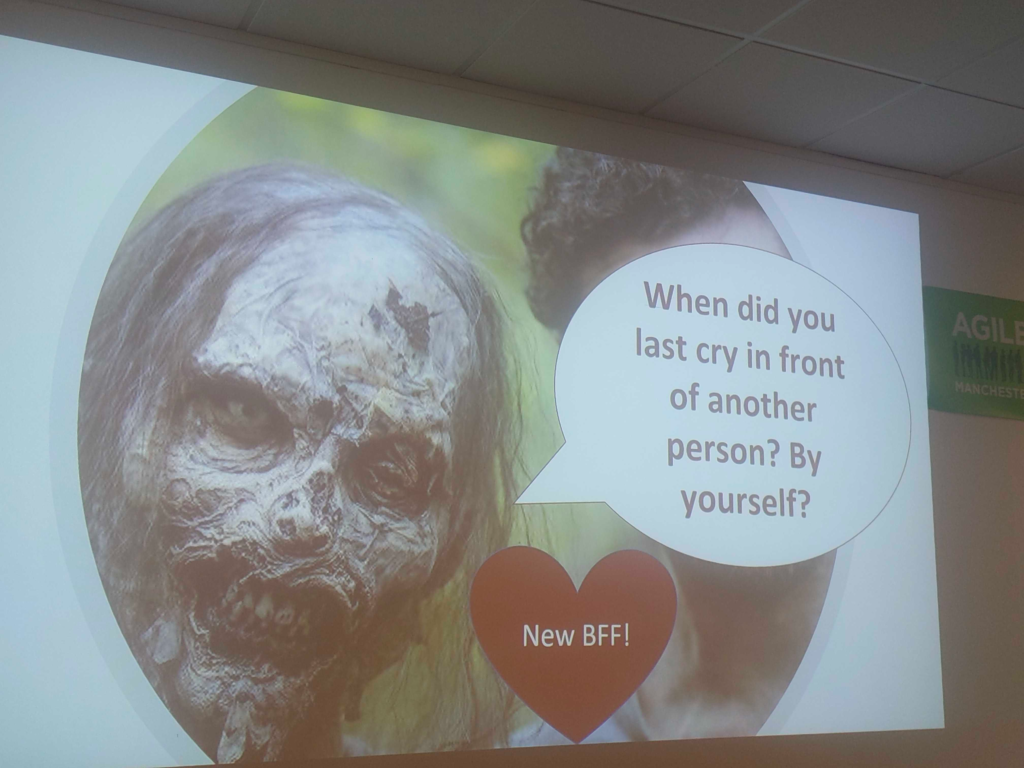
Ceri Newton-Sargunar opened her talk with “I’m here today to talk to you about zombies” and took a tour through all kinds of ideas for dealing with stress, burnout and conflict. One idea: There’s a list online of 36 questions designed to help 2 people build closer relationships – it got lots of attention after some people who tried it out went on to fall in love and get married. Probably it wouldn’t have that big an impact on your work colleagues but it might be good to try out just a few of them to see how it helps people understand each other a bit better.
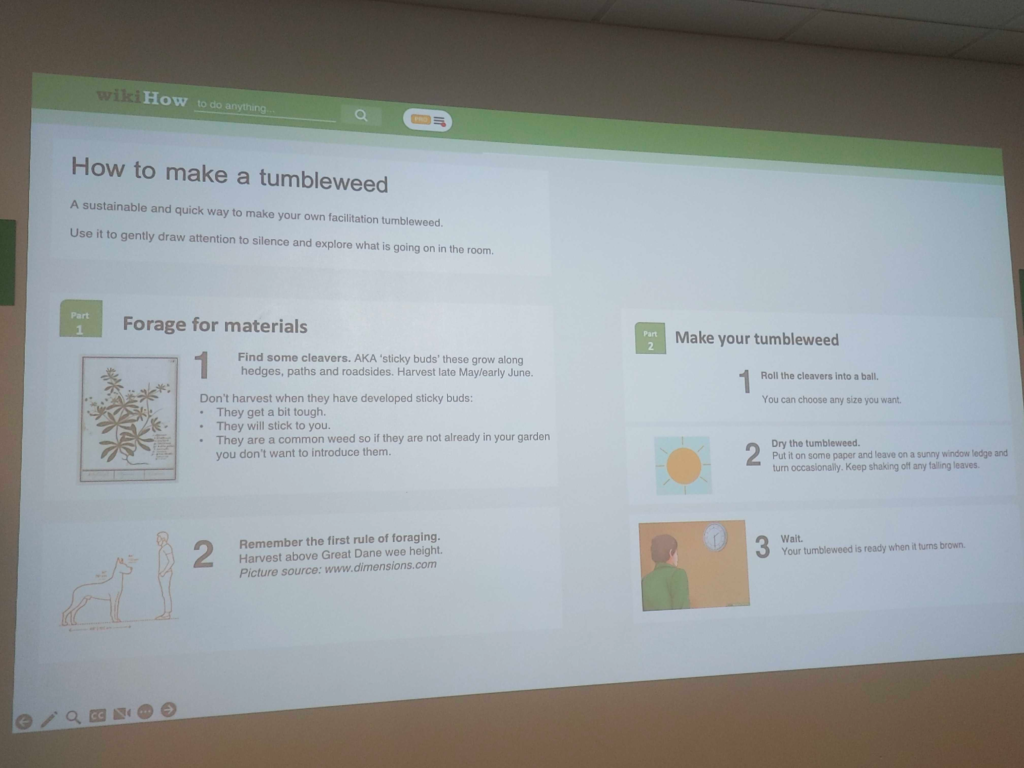
Jaimella Espley wrote a guide to making your own tumbleweed, to roll in front of the camera during those awkward silent moments in video calls. She talked about how humour’s helped teams she’s worked on, with reference to the Humor, Seriously book and lots of other sources.
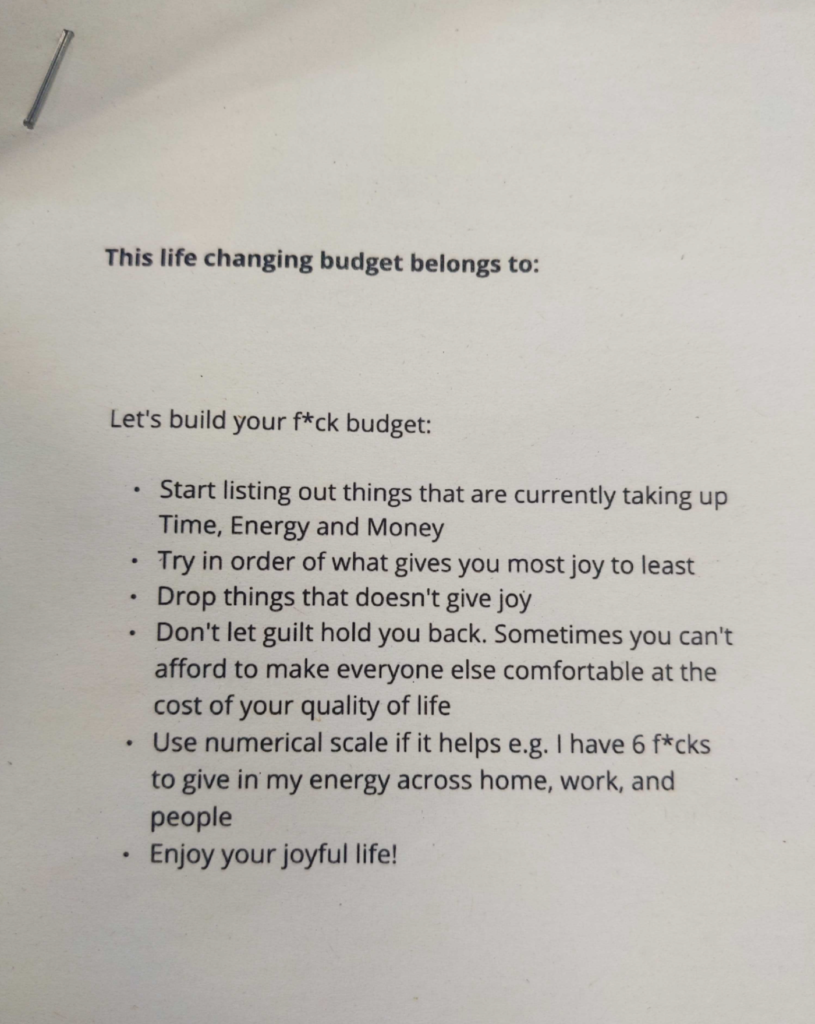
Sol Byambadorj talked about budgeting your time, energy and money to help you spend your time wisely. Using examples from “The life-changing magic of not giving a f*ck” (and managing to avoid swearing every time), Sol talked through practical tools she’s used and lots of examples of how this approach has helped her.
The end
There was plenty more interesting stuff over the 3 days, but I think this is a fairly good set of notes for now.
I’ve already written up notes from my own session (Minimum Viable Estimation, part 4 and part 5 cover it) – you could have a read of those if you haven’t heard quite enough about the conference already.